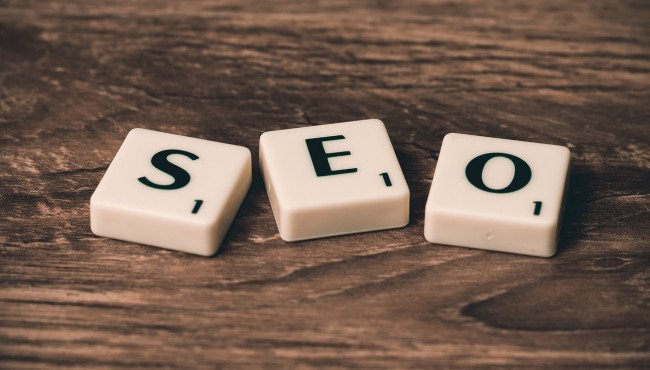views

Understanding SEO Marketing
You are certainly not alone in this inquiry. In the expansive online landscape of today, having a remarkable product or service is often insufficient for success. Visibility plays a crucial role in determining how easily potential customers can find your offerings, and this is precisely where SEO Marketing becomes essential. Search Engine Optimization (SEO) is the practice of enhancing your online presence so that search engines can effectively display your website to a broader audience. To put it simply, SEO encompasses strategy, content creation, and technical expertise, all aimed at building and earning trust in the online realm.
Before we delve into the specific steps you can take to optimize your website, it is important to clarify one fundamental point: SEO is not a form of sorcery. It is not about deceiving search engines into ranking your site higher. Instead, it revolves around a deep understanding of what users are searching for and ensuring that your website provides them with the answers they seek. This process is akin to walking through a straightforward, practical guide that will help you make sense of SEO and its implementation.
What Exactly Is SEO Marketing?
You will encounter the term "SEO Marketing" frequently, so let’s distill it into its essence. When people inquire about what SEO marketing entails or seek clarity on the meaning of SEO marketing, they are essentially referring to a systematic approach designed to enhance your website's visibility in search engine results. This method combines strategic planning, content creation, and technical work, all focused on earning trust and credibility within the digital space. By implementing effective SEO practices, website owners can significantly improve their chances of being discovered by potential customers.
It is essential to differentiate SEO from search engine marketing (SEM), as many individuals often confuse the two. To clarify:
-
SEO refers to organic visibility, which means it relies solely on unpaid efforts to improve search rankings.
-
SEM, on the other hand, involves a combination of paid advertising alongside SEO techniques to increase visibility.
Consider SEO as the fundamental foundation that underpins all your online marketing initiatives. If someone is curious about how SEO marketing operates, envision it as constructing a practical digital home. You need to get the architecture right, furnish it with valuable and useful content, and ensure that the entire structure remains clean and functions smoothly. This foundational work is essential for achieving long-term success in the digital landscape.
Throughout this guide, we will naturally incorporate our main keyword, "SEO Marketing." It is important to note that the focus of this guide is on executing SEO correctly rather than excessively stuffing keywords into your content. The goal is to create meaningful and relevant material that resonates with your audience while adhering to best practices in SEO.
Starting With the Basics: Keyword Intent
Effective SEO begins with a thorough understanding of what people genuinely want to find when they conduct online searches. A common pitfall for many businesses is the tendency to prioritize what they want to communicate rather than what users genuinely need to read. This misalignment can hinder the effectiveness of your content and SEO efforts, making it crucial to place yourself in the shoes of your audience.
To better align your content with user intent, ask yourself some key questions: What inquiries do my customers typically pose before making a purchase? What specific problems are they attempting to solve? Additionally, consider the language they use in their queries, steering clear of industry jargon that may alienate potential readers.
Utilize free tools to gain insights into search behavior and preferences, including:
-
Google Search Suggestions, which provide autocomplete suggestions based on popular searches.
-
The "People Also Ask" section highlights common questions related to your topic.
-
Search Console data, provided your website is already running, offers valuable insights into how users interact with your site.
Remember, keywords should not merely be about chasing high volumes; they should focus on matching user intent accurately. When executed correctly, SEO Marketing can help you connect with your audience precisely where they are in their search journey.
Optimize Your On-Page Elements (But Keep It Natural)
On-page SEO may seem intimidating, but it doesn't have to be. You do not need to possess extensive technical knowledge; you simply need to approach it thoughtfully. The key lies in optimizing various elements on your webpage to enhance user experience and improve search visibility.
Focus on several critical aspects, including creating page titles that resonate with human readers, crafting headlines that effectively answer users' questions, and ensuring that your URL structures are clean and logical. Additionally, write engaging meta descriptions that entice users to click and provide alt text for images to improve accessibility and searchability. Most importantly, ensure that the content of your page flows smoothly and is easy to read.
When incorporating SEO Marketing elements into your content, place keywords where they naturally fit. Think of it as having an organic conversation with your readers, rather than forcing a specific phrase into your writing every couple of sentences. This approach not only improves readability but also enhances the overall user experience.
Make Your Content Helpful, Not Just “Optimized”
Google's algorithm updates have underscored a crucial point: real humans should always take precedence over algorithms. When creating content, it is essential to prioritize providing clear explanations rather than resorting to fluff or filler material. Your audience seeks genuine value, and your content should reflect that need.
To enhance the helpfulness of your content, consider including real-world examples or scenarios that illustrate your points. Supplement your writing with visuals such as screenshots, diagrams, or checklists that can aid comprehension. Telling relatable stories where appropriate can also engage your readers on a deeper level. Above all, adopt a friendly tone instead of resorting to corporate stiffness, ensuring that your audience feels a connection with your material.
By teaching, guiding, and simplifying complex topics, you increase the likelihood that search engines will reward your efforts. It is vital to remember that your writing should resonate with people, making them feel as though you created the content specifically for them rather than for a search engine crawler.
Technical SEO: Don’t Ignore the Behind-the-Scenes Stuff
Even the most compelling content can falter if the underlying site structure is flawed. To ensure that your website performs optimally, it is crucial to check several foundational elements that contribute to a positive user experience. A well-structured site enhances not only the user experience but also the SEO performance.
Start by verifying that your site loads quickly, particularly on mobile devices, as page speed is a significant factor influencing user retention. Additionally, ensure that there are no broken links scattered throughout your site, as these can frustrate users and lead to higher bounce rates. Make sure that your pages are indexed correctly, that your navigation is intuitive, and that images are optimized so they do not slow down loading times. Lastly, confirm that your website is secured with HTTPS to protect user data.
You do not need to be a developer to make these improvements; numerous SEO tools are available that can guide you through the necessary fixes. If you are uncertain about where to start, consider utilizing Google’s free tools, which provide clear insights into areas needing enhancement on your site.
Build Trust With Authority Signals
Search engines assess the trustworthiness of your website through various authority signals. These signals are critical for establishing your site's credibility and enhancing its visibility in search results. To build trust, focus on acquiring quality backlinks from reputable sources rather than spammy links that can harm your reputation.
Additionally, seek mentions from relevant websites and consider leveraging social signals and brand mentions to enhance your online presence. Regularly updating your content to keep it fresh and relevant is another way to demonstrate credibility. Finally, positive reviews and testimonials from satisfied customers can significantly bolster your site's trustworthiness.
Think of building trust online as a reputation-building exercise, similar to how you would establish credibility in offline interactions. In both cases, reputation matters, and the more credible your site appears, the better your chances of ranking well in search engine results.
Track Your Progress (It’s Not “Set and Forget”)
SEO is an ongoing process, and even after implementing optimization strategies, it is vital to continuously monitor your progress. Keeping an eye on various metrics will help you understand how well your efforts are paying off and where adjustments may be necessary. Tracking your website's performance can provide valuable insights into user behavior and preferences.
Some key metrics to monitor include the sources of your website traffic, your search rankings, and the click-through rates for your pages. Additionally, pay attention to pages that may require a content refresh to remain relevant and engaging. Lastly, track conversions, as traffic alone does not equate to success without tangible results.
Practicing SEO effectively requires a mindset of curiosity and a commitment to learning. By consistently analyzing real data and adapting your strategies accordingly, you can improve your website's performance over time.
Final Thoughts
You do not need to transform into an SEO expert overnight to experience success in this field. However, understanding the foundational aspects of SEO, from keyword intent to the technical health of your website, will provide you with a competitive advantage in the digital marketplace. The core principle of effective SEO Marketing is straightforward: strive to be genuinely useful to your audience.
When you prioritize clarity, usability, and trustworthiness in your content, your search rankings will improve as a natural consequence. Begin with small, manageable efforts and remain committed to your goals. More importantly, ensure that your material resonates with your audience by presenting it in a manner that feels human-centered, benefiting both search engines and customers alike.











